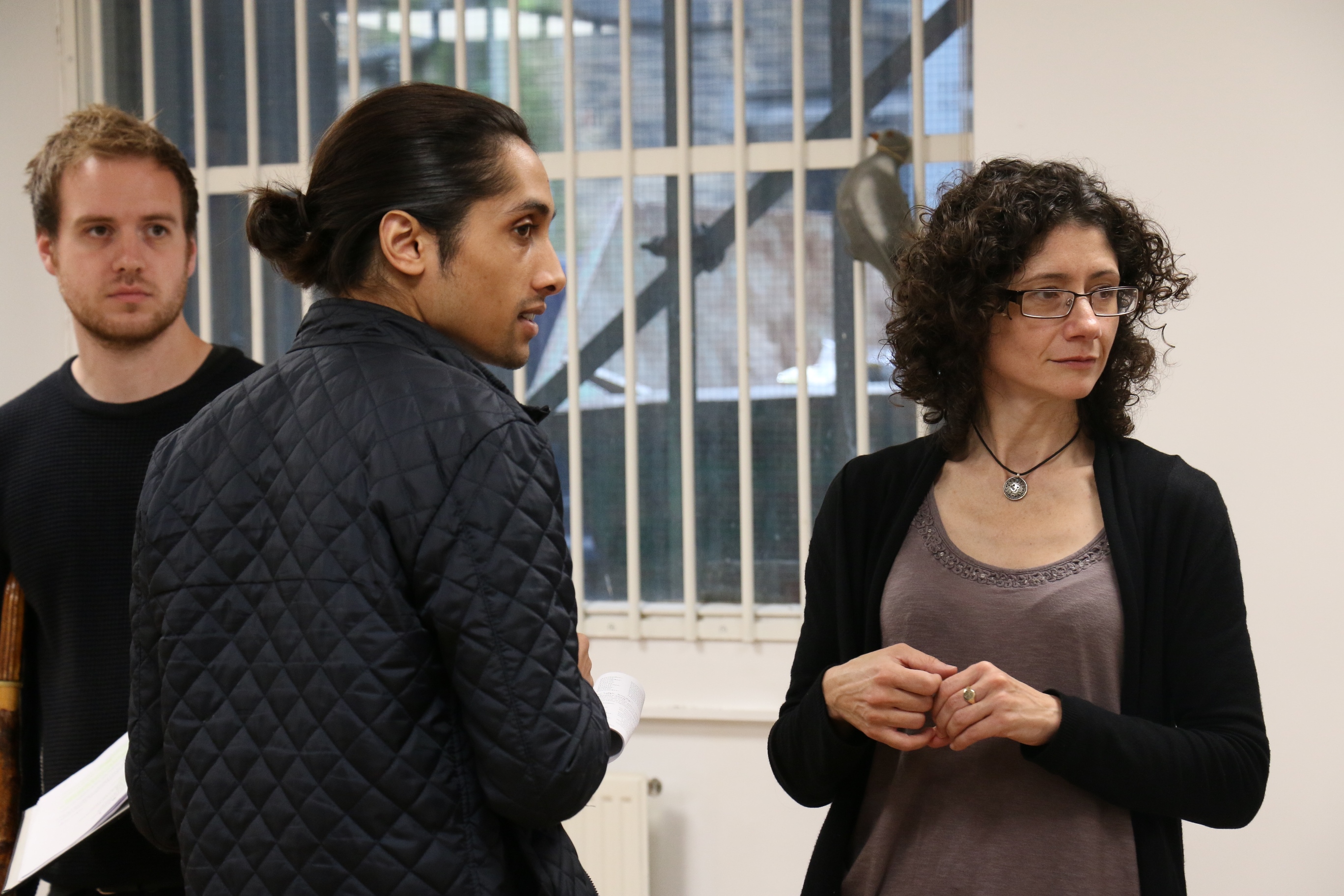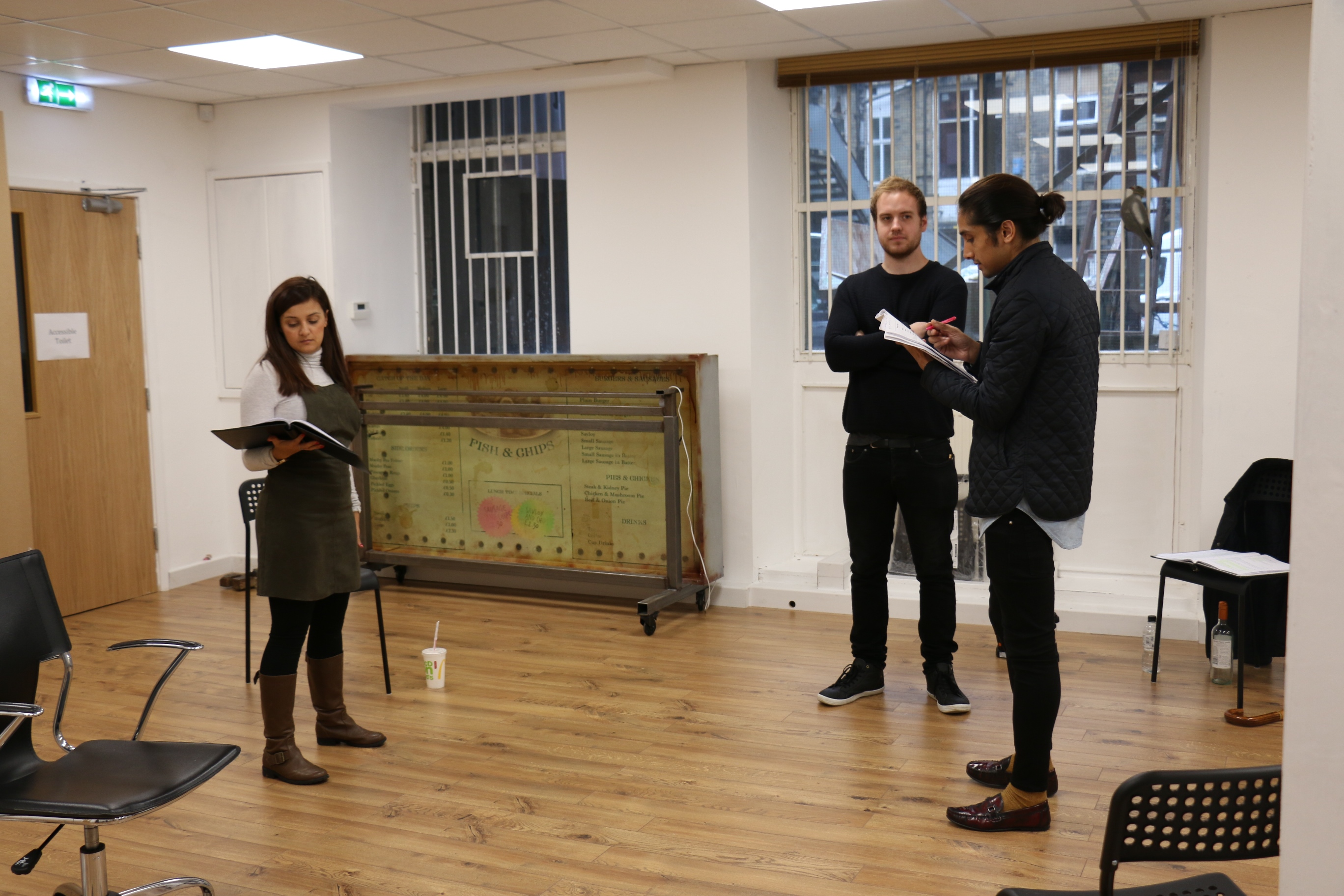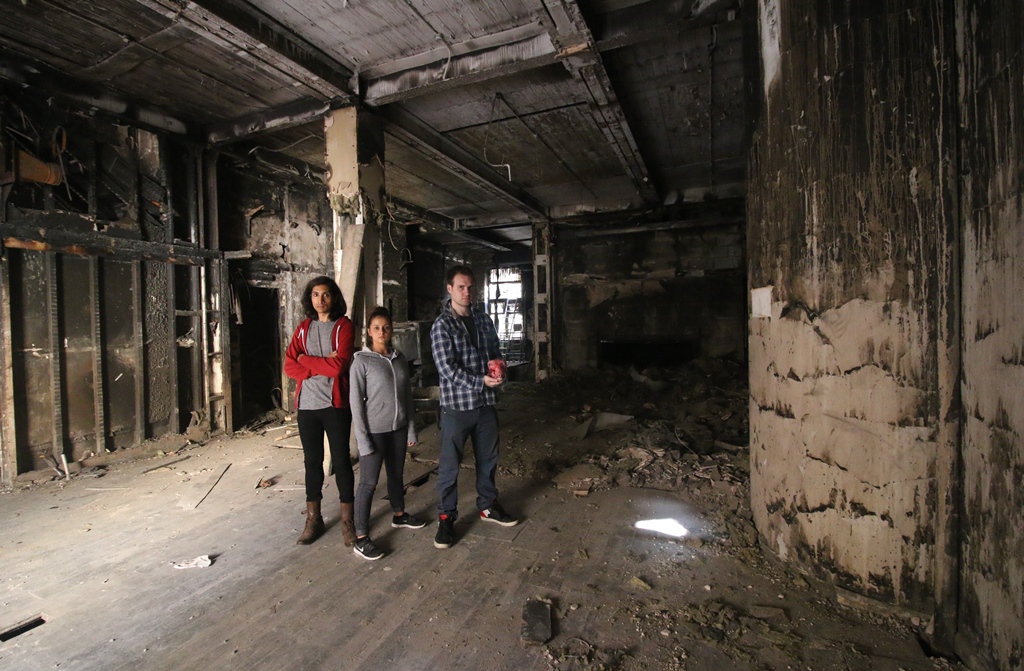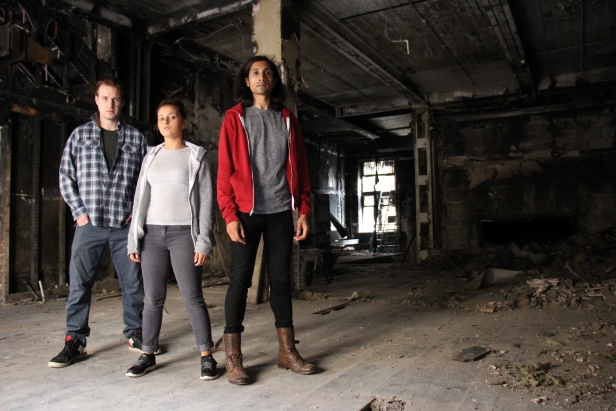With what looks like the real life end-of-days on the horizon, Bradford-born playwright Tajinder Singh Hayer’s new play North Country might not be as far fetched as it seems.
It tells the story of three young people from Bradford – Nusrat Bibi, Harvinder Singh and Jason Alleyne – as they navigate life at the start of a devastating pandemic. Starting in Autumn 2016, the play follows the three characters over the next forty years or so as they attempt to rebuild their world.
North Country opens on Wednesday 26 October at The Wild Woods in Bradford. We spoke to Singh Hayer about the apocalypse, British Asian representation and bringing the play to life…
SciFiNow: Where did the idea of for North Country come from?
Tajinder Singh Hayer: There are quite a lot of relics of Bradford’s industrial past dotted around the city. I grew up in the place, and frequently walked past these factories that looked post-apocalyptic in their decayed state. So it made sense to write something that was genuinely post-apocalyptic in Bradford.
Where did you look for inspiration while writing the play?
As I’ve mentioned, the post-industrial landscape of Bradford was a significant trigger for me. I’d go on these long, looping walks around the city imagining what it would look like if more places were abandoned; I studied maps to get a sense of the geographical shifts that might occur in this future. I also read and watched a fair bit of post-apocalyptic work.

Did you face any specific challenges while devising the play?
I think the fact that many of the post-apocalyptic exemplars are filmic or prose fictional did make me wonder why I was writing this story as a play. However, as it’s a piece about communities struggling to survive in age of scarcity, it made sense that I should use an art form that taps into the communal. I was also concerned about how to represent on stage the ‘big’ ruined vistas that frequently pop up in post-apocalyptic fictions. There were a few solutions to this: I could tap into the audience’s imagination to fill the gaps; I had to find powerful ‘smaller’ settings; the location of the production could be used to enhance the play, which is what’s happened – we’re performing in an abandoned Marks and Spencer in Bradford town centre.
Are you interested in the post-apocalpytic sub-genre in general?
Yes. As part of my ongoing PhD at Anglia Ruskin University, I’ve been looking at numerous examples (Cormac McCarthy’s The Road, George R. Stewart’s Earth Abides, Max Brooks’ World War Z and Emily St John Mandel’s Station Eleven have been particular standouts). When I lived down south, I was also a regular attendee at the Post-Apocalyptic Book Club in Kings Cross. After North Country, however, I could, perhaps, do with a small rest and read/watch something a little more cheerful.

Do you think there needs to be more British Asian representation in the sci-fi genre?
I think there does need to be more British Asian representation in SF. For example, during my initial PhD research into post-apocalyptic fictions, I found only one example with significant British Asian characters (Peter Dickinson’s 1970 novel, The Devil’s Children). Whilst things are changing, I’m pretty sure these absences are there in the wider genre too. There’s an obvious reason why this needs to be addressed; SF is often focussed on imaginary futures, and, if you have ethnic minorities that are absent from those narratives, you risk suggesting there will only be monocultures to come.
Similarly, fantasy and horror can also allow you to engage in interesting dialogues with our cultural pasts (for instance, Zen Cho’s novel, Sorcerer to the Crown, uses fantasy to reframe how we look at nineteenth century Britain). The post-apocalyptic genre, for me, is a great device for examining how cultural values change; in effect, you’re looking at people negotiating the shift from a pre-apocalyptic ‘old country’ to a post-apocalyptic ‘new country’.
Is North Country representative of what you think could possibly happen in the future?
I hope that the pandemic doesn’t happen! However, as I’ve said before, the play is about communities in a time of scarcity. I suppose there’s no surprise that, in this age of anxiety and overall post-ness (post-Brexit, post-2008, post 9/11, post-industrial, post-truth politics), the post-apocalyptic subgenre should be thriving. The play contains my worries about this (resource drought leads to division and scapegoating) and my hopes too (there are still people who forgo the easy cultures of blame and retain a sense of idealism).

You can find more information on North Country and buy tickets on the Freeform Studios website. Get all the latest sci-fi news with every issue of SciFiNow.
